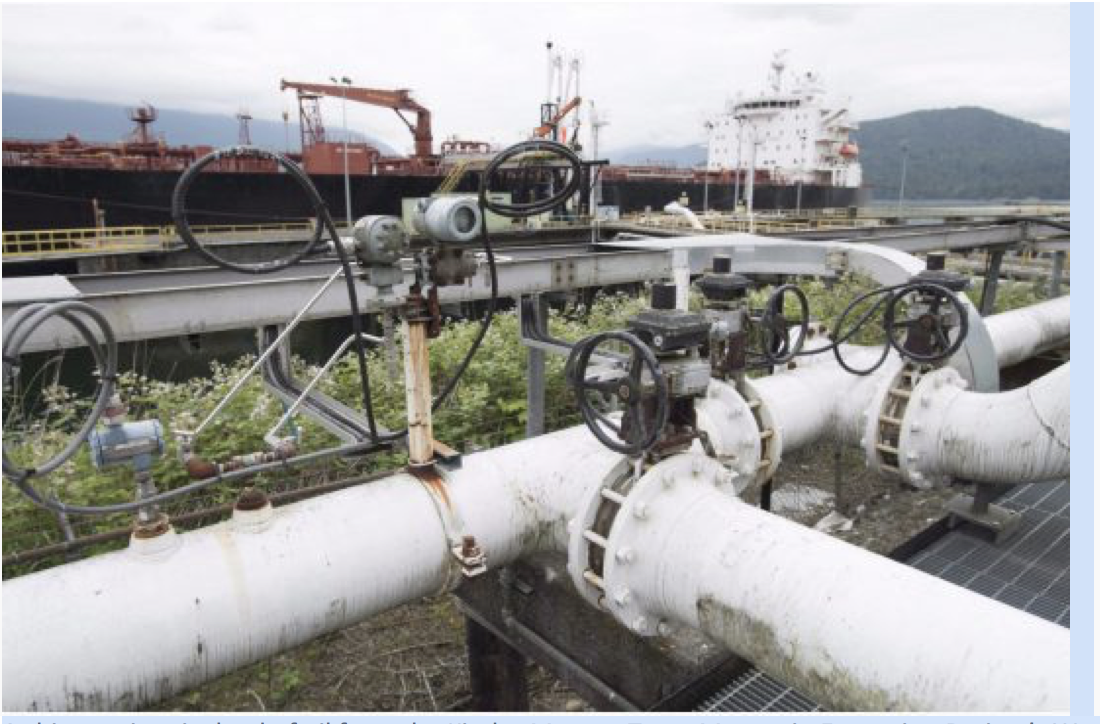May 2016, Vol. 243, No. 5
Features
Will Canada Ever Build Another Pipeline?

It seems hard to believe, but we may never build another pipeline in Canada. A nation whose wealth is closely tied to resources seems to have suddenly decided that economic stagnation is preferable to any project that might – and I stress the word might – have a negative effect on the environment.
If this is what we collectively believe, then we will presumably be content with the consequences. But is this approach really in our national best interest? Or are there solutions that enable us to do our part in combating climate change without stifling the growth prospects of one of our major industries?
Canada has been richly endowed with hydrocarbon resources. If responsively developed and managed, they could continue to be significant contributors to our GDP for decades to come.
The problem is access to markets. Historically, our distribution system ran north to south. We send most of our oil to the United States for refining, mainly through a pipeline system that was constructed over several decades after World War II. Our domestic refineries, which were located close to the major population centers in central Canada, relied mainly on imported oil for feedstock.
The system may have been imperfect, but it worked. That’s no longer the case.
The United States, perhaps giddy with the bounty from the shale revolution, has effectively said it doesn’t want any new Canadian oil. First, President Obama rejected Keystone XL after years of dithering. Then Secretary of State John Kerry told the CBC’s Rosemary Barton he sees no pressing need for any new pipelines from Canada, saying his country already has 300 pipelines and that new technologies such as liquefied natural gas have changed the dynamics.
If we can’t sell any new production to the U.S., where will it go? Are we just going to throw up our hands and say no more oil patch growth?
Once it became apparent we could no longer look to the U.S. to consume our increasing oil output, attention turned to Asia. That was back in the years when it appeared the Chinese economic miracle would never end. In 2006, Enbridge Inc. proposed building the Northern Gateway Pipeline from Edmonton to Kitimat, B.C., where the oil would be loaded on tankers for export. That project isn’t officially dead, but opposition from First Nations, a large segment of the B.C. population, and the B.C. government, plus the federal Liberal party’s pledge to outlaw tanker traffic in the region, has effectively killed it.
In May 2012, Kinder Morgan announced plans to twin an existing pipeline between Alberta and Burnaby, B.C. If Keystone XL was a “no-brainer”, as Stephen Harper once described it, the Kinder Morgan plan should have been even more so. Their Trans Mountain pipeline was long established (it was built in 1953) and the $6.8 billion twinning would increase capacity from 300,000 bpd to 890,000, creating a huge economic win for Canada in general and Alberta in particular.
Well, this no-brainer may not happen, either. In January, the B.C. government announced its opposition to the plan, saying the company had not been forthcoming with details on how it would prevent spills and respond to any that occurred. Meanwhile, First Nations organizations, environmental groups, and others have gone on record as opposing the plan.
Finally, we have Energy East, TransCanada’s ambitious proposal to move Alberta oil all the way across the country to refineries in Montreal, Quebec City, and Saint John, N.B. The latter also happens to be a deep-water port, from which our oil could be exported. It’s another no-brainer, at least at first glance. The pipeline would extend for 4,600 km and carry 1.1 MMbpd of Alberta and Saskatchewan crude. It would be an all-Canadian project, with no borders to cross. About 3,000 km of the line are already operating, transporting natural gas. That section would be converted to oil.
But opposition is building. TransCanada had to cancel plans for a marine terminal on the St. Lawrence River because of its proximity to a beluga whale calving ground. The federal government has extended the review period to allow for more environmental assessment. Mayors in the Montreal area have gone on record against it. The Quebec government is seeking an injunction to ensure TransCanada complies with the province’s environmental rules. The chief of the Mohawk community that lies along the proposed route has denounced the project as potentially catastrophic for his people and says any construction without their consent would violate international law. And on it goes. The project start date has already been pushed back two years.
Is this what we really want? Do we as a nation truly wish to shut down the prospects for future growth in one of our most important industries? Because if we say no to any more pipelines, that’s what is going to happen. The economic consequences won’t be pretty.
(This article originally appeared in The Toronto Star. Gordon Pape is the publisher of the Internet Wealth Builder newsletter. His website is www.BuildingWealth.ca.)





Comments